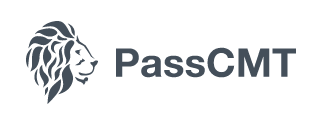Add these ten foods to your diet is a simple and effective way to recharge your learning sessions so that your efforts to improve scores do not stop. A balanced diet, a hydrated diet and paying attention to your overall diet are a great way to supplement your study habits.
If you want to know how to learn better and keep more information, start by feeding your body and brain with the food they crave. If you eat well, you are more likely to remain alert, focused and energetic during your studies. Let’s see how you can recharge yourself with the right brain food for exams.
The Mediterranean diet emphasizes unprocessed foods such as fruits, vegetables, olive oil, legumes, nuts, whole grains, fish, seafood, poultry, eggs, yogurt and meat, topped with a little red wine. Many popular ethnic cuisines such as Italian, Greek, Middle Eastern, Indian and Asian meet the criteria for a Mediterranean menu. Learn to eat and drink the best foods for study and eating strategies for exam days to prepare your brain for mental peak performance.
If you want to prepare your brain for future tasks, check out our tips on what foods to add to your regular diet. We’ve broken down the foods at the top of the nutrient list and how they fit into your exam week plan and long-term focus, as well as the times you need a brain boost. The best brain foods to eat before the exams Now that you have the big picture in mind, let’s look at the specific foods you want to include in your diet.
How to get the best food and drink for concentration Most research on foods that increase brain performance looks at periods from several weeks to several months.
If you’re reading this Brainscape article, you’re probably looking for the best brain food for exams. Proper nutrition has both short-term and long-term benefits for brain health. As you know, a healthy, balanced diet looks like a quarter of a pound, but that’s not all.
A healthy brain improves mental performance, working memory and concentration, making you rounder, healthier and more capable of learning. With Brain, Brawn and the world’s most effective flashcard app, we came together at Brainscape to learn all you need to know about studying.
The first 5 ways to boost brain performance and language acquisition are key to maintaining a healthy brain, but brain supplements can also be very helpful. The next five ways to increase brain performance in language acquisition and nutrition require some discipline.
We’ve heard it a million times: eating right to be smart, and eating right makes you smarter. It means eating the right foods to give your brain the nutritional support that will help you work at a higher level. Studies have shown that sardines, salmon, walnuts, broccoli, spinach, celery, avocados and blueberries, raw or cooked (depending on), can help to concentrate better and have better memories.
You need to eat the right foods during the time you want to study. This means avoiding the list of bad foods that can cost you time when you plan to study and when you are done with studying.
It is true that eating certain foods can improve your ability to concentrate, retain information and stay alert to guide you through grueling study sessions. If you want to learn more effectively how to study and improve your mental alertness to earn better grades, you can try all kinds of learning techniques. Harvard researchers have found that dreaming can be used as a method to reactivate and reorganize learning materials.
There are many active and effective study strategies that have proven effective in higher education. This does not mean that something is wrong with you, it just means that you need to learn effective learning skills. Implementing several tips for effective study in your regular course of study will help you learn the course material more effectively.
Science is all about tinkering with nature, and in this case the easiest way to do that is to study the effects of essential oils and plants on concentration, concentration and memory.
Some studies have shown that lavender has a good memory effect, while others have shown that its effect is negligible, because it is an oil in tea used to relax the body in preparation for sleep. This makes sense, as many other studies have mentioned that sleep is generally beneficial for improving brain function. While lavender can be calming to concentrate, sandalwood and frankincense (also known as boswellia) have proven promising results in most studies.
A German study found that a six-minute nap helped improve memory. In fact, a Stanford study found that listening to certain music improves studies. The study found that music activates certain areas of the brain associated with prediction and attention.
A review of 12 studies involving children, young adults and older adults found that 8 of the 12 studies reported an improvement in cognitive performance, including short and long-term spatial memory tests when blueberries or blueberry supplements are taken (3). The researchers concluded that future well-designed studies are needed to confirm this effect. Several other studies, including anthocyanin-rich berries, also reported improvements in cognitive performance (4, 5).
Students who eat nutritious foods show more efficient problem-solving skills, greater understanding of facts, and stronger mental memory. Students who choose foods that fuel their studies are more likely to succeed. Research has shown that a nutritious and varied diet improves concentration, improves memory, extends attention span and improves thinking.
Glucose is a by-product of carbohydrates, which are the main energy source of the body and the only useful fuel for the brain. An ideal study snack consists of a portion of a high-quality carbohydrate source and lean protein.
